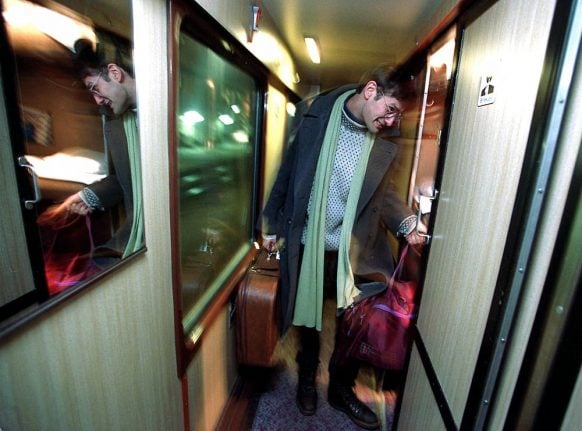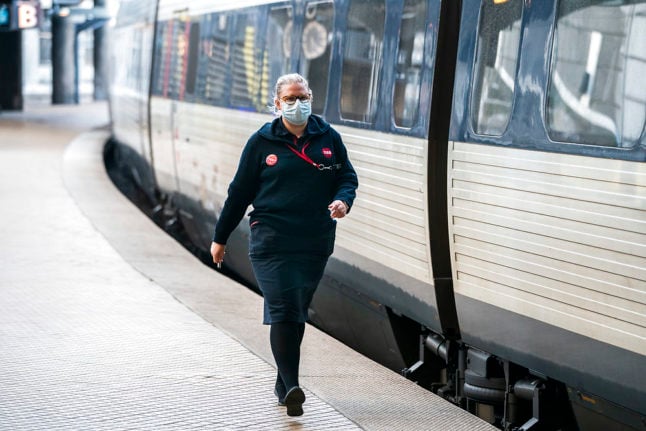Sweden has recently mooted the idea of expanding its international rail departures to increase overnight connections to European destinations.
The overnight trains would offer a climate-friendly alternative to flying to destinations such as Berlin and Paris.
But Denmark’s national operator DSB says such services would be likely to make a loss.
The company has no plans to invest in sleeping cabins, deputy CEO Aske Wieth-Knudsen told DR Nyheder.
“We’ve tried it before, and it’s precisely this type of rail service that’s hard to make profitable,” Wieth-Knudsen said.
“But we are open to working with the Swedes or others if they want to operate via Copenhagen Central Station,” he added.
“Sleeping carriages are particularly expensive to invest in, and it is something that would make a loss. That’s why DSB is not prepared to invest alone in sleeper trains to Europe. It’s just too expensive and would mean higher ticket prices,” he also told the broadcaster.
Any route from Sweden to mainland Europe would be likely to pass through Denmark via the Øresund Bridge connecting the two Scandinavian countries.
Sweden’s government has already spent 50 million kroner on feasibility studies for the potential new international services, DR writes.
Danish transport minister Benny Engelbrecht has confirmed his willingness to discuss options with Sweden regarding the proposed rail routes.
Henning Hyllested, spokesperson for transport with Denmark's left-wing Red Green Alliance party, said it was currently “very, very difficult” to travel across Europe by rail.
“Connections are slow, you have to change (train) many times, and you can’t book tickets for the entire journey. Denmark and DSB should get on the bandwagon and participate in this plan if it is possible,” he told DR.
Major political investment would be required to persuade large numbers of people to choose rail travel over flying, said Niels Melchior, an Aalborg University analyst.
“It would require large subsidies to be given to rail operations, and the cost of flying would also need to be looked at. One method here would be to increase tax on aircraft fuel,” Melchior told DR.
“It’s currently on the agenda to talk about taking the train more and flying less, and there are some groups who do it in practice. But we don’t know whether it will eventually apply to the general population,” he added.
READ ALSO: Passenger brings Denmark-Sweden train to emergency stop after realizing he was 'going the wrong way'



 Please whitelist us to continue reading.
Please whitelist us to continue reading.
Member comments